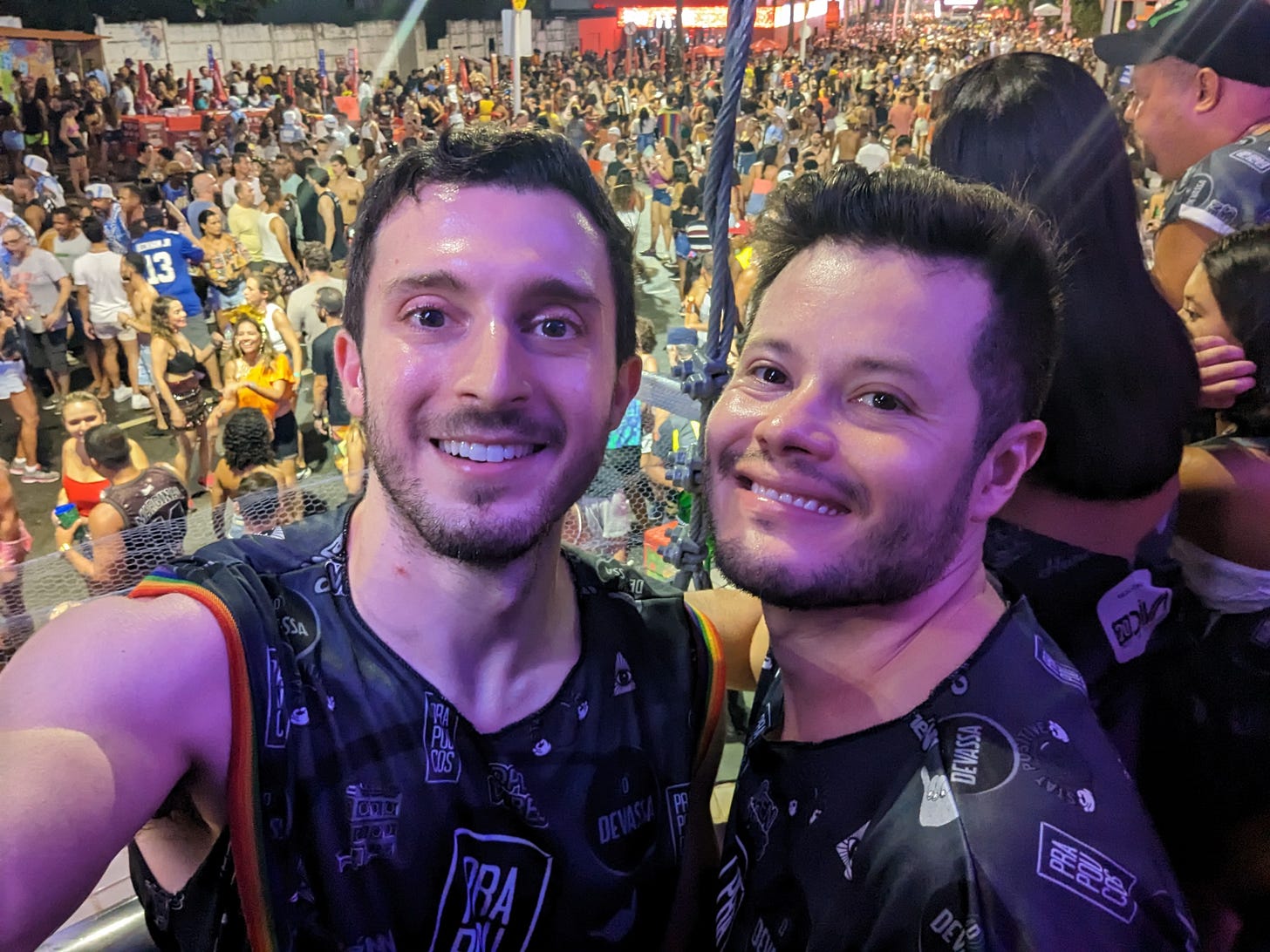Rhythm and Revelry: Salvador's Carnival, the World's Largest Street Party
If your idea of a pre-Lent cleanse involves samba, sweat, and uninhibited self-expression, Salvador's Carnival might be the ultimate cathartic escape.
📍 Salvador, Brazil
If Lent is a time to tame your inner demons, pre-Lenten Carnival in Salvador, Brazil, might just set them ablaze. This is the planet's largest street party, a six-day vortex of rhythm, revelry, and unabashed self-expression that draws over two million people.

Salvador, the capital of Brazil's Bahia state, is where contradictions collide. Founded in 1549 by Portuguese slave traders, Salvador served as Brazil's capital until 1763. The shadow of that brutal legacy lingers. Bahia remains one of Brazil's poorest states, and Salvador bears the socioeconomic scars. Yet, a defiant spirit pulses beneath the surface. The city's population is 80 percent Afro-Brazilian, the highest of any major Brazilian city, and Carnival is where that heritage erupts in technicolor brilliance.
The soundtrack to this joyful rebellion is a relentless, intoxicating mix of samba, afoxé (with its hypnotic drumming and Yoruba-rooted call-and-response vocals), and the mesmerizing spectacle of capoeira. This Afro-Brazilian martial art, expressed as dance, tells its own story of liberation. The streets themselves become the stage, throbbing beneath the feet of cross-dressers, samba queens in barely-there jeweled costumes, and exuberant crowds shaking in unison.
Unlike Rio's parade-focused Carnival, Salvador is an immersive free-for-all. You can lose yourself in the hypnotic crush of the rua (street) or join a bloco, one of the roving street parties centered around trios elétricos – massive sound trucks blasting music from Brazilian superstars. The Filhos de Gandhy (Sons of Gandhi), thousands strong in their flowing white robes and turbans, march through the chaos, with their peaceful presence amidst the joyous bedlam.
Here, for a week, inhibition isn't just shed; it's pulverized. It's gritty, sweaty, and visceral. There's a raw authenticity to Carnival in Salvador, a sense of everyone laying themselves bare – their desires, their eccentricities, their hard-won zest for life. For a few precious days, this city that endured unspeakable hardships becomes ground zero for uninhibited self-expression. You don't just witness this spectacle; it courses through your veins.
Of course, there are those who might question the revelry in a place still struggling to overcome its legacy of poverty and inequity. Locals will tell you it's both: part necessary escape, part affirmation that their spirit is unbreakable. For those swept up in the maelstrom, it's easy to embrace the optimistic view: Here is a culture that refuses to be defined by its past.



Camarotes offer an alternate, air-conditioned perspective to the rua (street party) below. These ticketed enclosures, perched high above the fray, provide catered buffets, prime viewing spots, and a chance to mingle with Carnival die-hards. They're oases amidst the chaos, drawing some who crave a touch of exclusivity, and others who simply need to recharge before diving back in.
You can try to dissect Salvador's Carnival – to pinpoint its anthropological significance or marvel at its economic impact. But to truly grasp its essence, you need to step into its swirling embrace. This is a place to shed your observer persona, to join the dancers, to shout yourself hoarse, to let this joyous anarchy rewrite your understanding of what a celebration can be. You may emerge exhausted and glitter-strewn, but you'll likely be changed—infused with a spirit you didn't know you possessed.
🕹️ Travel tip: For a mouth-watering meal that combines delicious Bahian cuisine with breathtaking views of the sea and Salvador's colonial sites, don't miss Cantinho da Jô. Located on the third floor of a favela in Barra, the main neighborhood that hosts Salvador's renowned Carnival, this charming cantina offers some of the finest moquecas (seafood stews) in the province.





